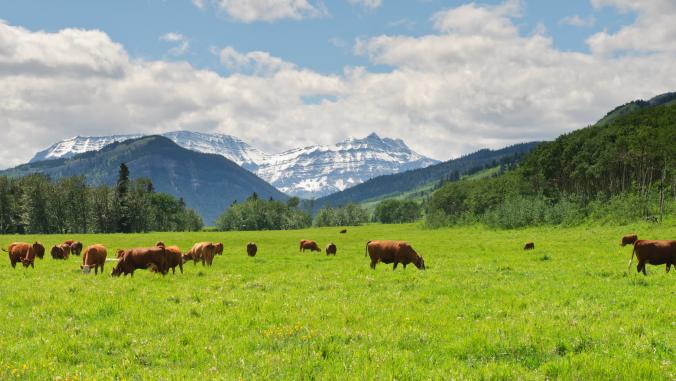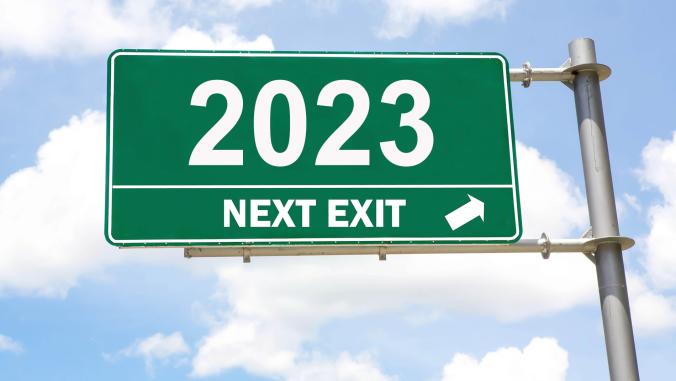What Color is the Triple Bottom Line?
<p>What do you call someone committed to sustainability?</p>

I recently posted a query on Twitter and Facebook asking a simple but vexing question: "Someone committed to the environment is called an environmentalist. What do you call someone committed to sustainability?"
The answers I got were largely snarky, smug, and, ultimately, unsatisfactory. (I probably should have added a single-worded addendum: "Seriously.") Suggestions included "A good ancestor," "Idealist," "Human," "Thinker," "Educated," "Brilliant," and the like. A few folks gamely stepped up to the challenge: "Regenerative designer," "Sustainer," and "Triple bottom liner" were among their suggestions.
Someone pointed to a blog called The Sustainabilitist, which seemed to be trying to coin a meme along those lines.
As I said, all of this left a lot to be desired.
This is no mere idle noodling. Names matter. They create definitions, frameworks, images, and reference points, and are essential to the birth of movements, eras, and culture change. Can you name a significant movement, era, or cultural shift that didn't have a good name or descriptor? The media and blogosphere are famous for branding just about everything -- witness the "gate" suffix appended to nearly every scandal, no matter how clumsily, since Watergate in the 1970s. Without a name, ideas rarely catch on.
Since the 1970s, we've referred to "the environmental movement" and "environmentalists." These days, the attention is shifting toward the broader arena of sustainability, which includes environmental concerns as well as social and economic ones. And while for some sustainability is used synonymously with environment, that misperception is slowly fading as activists, business leaders, thought leaders, and others help to shape the conversation away from conflating the "S"-word with the "E"-word.
"Sustainability" is, most people agree, a challenging term. Most people find it hard to define, frequently reverting to the clumsy definition of "sustainable development" set forth by the Brundtland Commission, convened by the United Nations in 1983. The commission's 1987 report, Our Common Future, made this now well-known declaration:
Sustainable development is development that meets the needs of the present without compromising the ability of future generations to meet their own needs. It contains within it two key concepts:
- the concept of "needs," in particular the essential needs of the world's poor, to which overriding priority should be given; and
- the idea of limitations imposed by the state of technology and social organization on the environment's ability to meet present and future needs.
That definition isn't bad, but it doesn't exactly roll off the tongue. And it is only mildly helpful today, when references to sustainability (as opposed to "sustainable development") extend well beyond the "needs of the world's poor" to include (among other things) the actions and outcomes of companies, products, processes, and social systems in both developing and developed economies.
Some have boldly try to update Brundtland's definition of the sustainability (some can be found here), but none of these definitions has become widely used. (For what it's worth, I often describe sustainability as "An intergenerational Golden Rule.")
And no one has yet come up with a better word to describe attention paid to environmental, social, and economic matters. So, assuming we're stuck with the word, how do we talk about people committed to sustainability? I'd still like to know.
What about green? I regularly hear pronouncements to the effect that "Green is passé," or that "Consumers have green fatigue."
Perhaps, but that's not the whole story.
Green may be losing its mojo in the consumer marketplace, what with consumer distrust of corporate green marketing and most companies' timid, tepid marketing efforts that have turned consumers off (or never turned them on). But in the business world, green seems alive and well. There's green building of course, as mainstream an industry as any. And the field of green business seems anything but tired or passé. Indeed, it is growing rapidly, far more so than most people realize. And while some companies refer to their efforts as "citizenship," "responsibility," or, yes, "sustainability," I've yet to see any executives shudder when someone refers to their company or activities using green as an adjective to modify their activities or products. Many use it themselves.
The conversation about green versus sustainability is one that takes place regularly within the walls of my own company -- which, after all, produces GreenBiz.com, the State of Green Business report, the Green Confidence Index, and many other things using the "G"-word. We debate whether that word is too limiting for our ever-growing constellation of products and services. Should we be branding ourselves more around sustainable business?
Or maybe, as I've suggested, the definition of "green" should be broadened to include non-environmental matters. That's been the case in politics, in both the U.S. and Europe, where "green" includes labor issues, social justice, health care, immigration, financial reform, and a host of other issues, including environmental ones. Could the same happen in business and the consumer marketplace? Could green come to mean a broader set of issues?
Creating and defining memes is hard stuff. A couple years ago, my friend and colleague Adam Werbach, now head of sustainability at Saatchi & Saatchi, made a run at shifting the color palette, with a speech and subsequent writing about "The Birth of Blue" -- the emergence of a "post-green, consumer-led movement that aggregates the power of both marketers and consumers as catalysts for social change."
It was a noble attempt to broaden the conversation beyond the environment to include the social aspects of social change -- that is, what many people refer to as "sustainability." But I haven't heard many people talking lately about blue.
That leaves me where I started: What should we call those who believe in the importance of addressing the full spectrum of environmental and social issues in transforming companies, consumers, and markets? Are we "sustainabilists," "sustainers," or something else?
And I repeat my original question: "What do you call someone committed to sustainability?" I'd really like your thoughts. Seriously.
Joel Makower is Executive Editor of GreenBiz.com.





